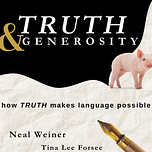“Consider, for example, the famous line from Macbeth: Tomorrow, tomorrow, tomorrow, creeps in this petty pace from day to day. . . The interpretation that sees ‘tomorrow’ as a mere pointless repetition is inferior to the one that sees the repetition as purposeful and integral to the overall point of the sentence, all else being equal.”
We appreciate your support! Thank you!
—Neal and Tina
15
The Interpretive Ideal
FROM THE IMPERATIVE to seek teleological perfection in literary whole/part relations as much as possible comes an expression of a deeper principle concerning the very meaning of intelligibility. The ideal we apply to language and literary works can also be seen as a defining aspect of the understanding. As we have said, the ideal is incomplete, but its incompleteness is precisely the thing that allows us to bring it into the clearest possible light.
Listen to this episode with a 7-day free trial
Subscribe to Philosophy and Fiction to listen to this post and get 7 days of free access to the full post archives.








